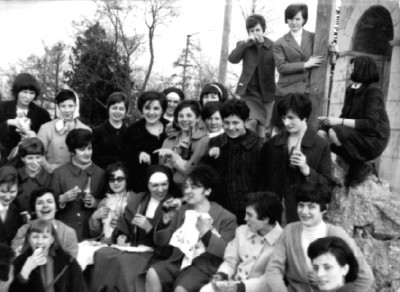2. The Oratorio Femminile: Young Women’s Socialization and Growth in Post-War Italy
by Daniela Cavallaro
The few academic studies which look at the development and goals of the Catholic youth centres known as oratori tend to privilege the oratorio maschile over its all-girl counterpart. This article aims to bring to light the experience of the oratorio femminile as an important moment of socialization and growth for girls, teenagers and young women in the post-World War II years. It first provides a brief introduction regarding the origins and development of the oratory in Italy.




